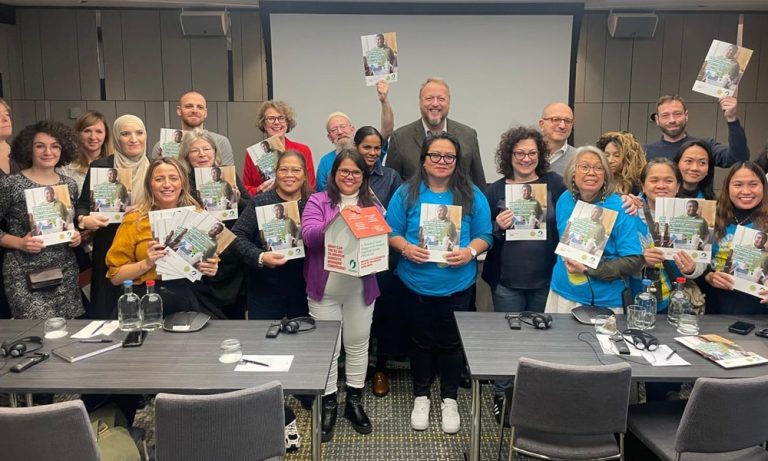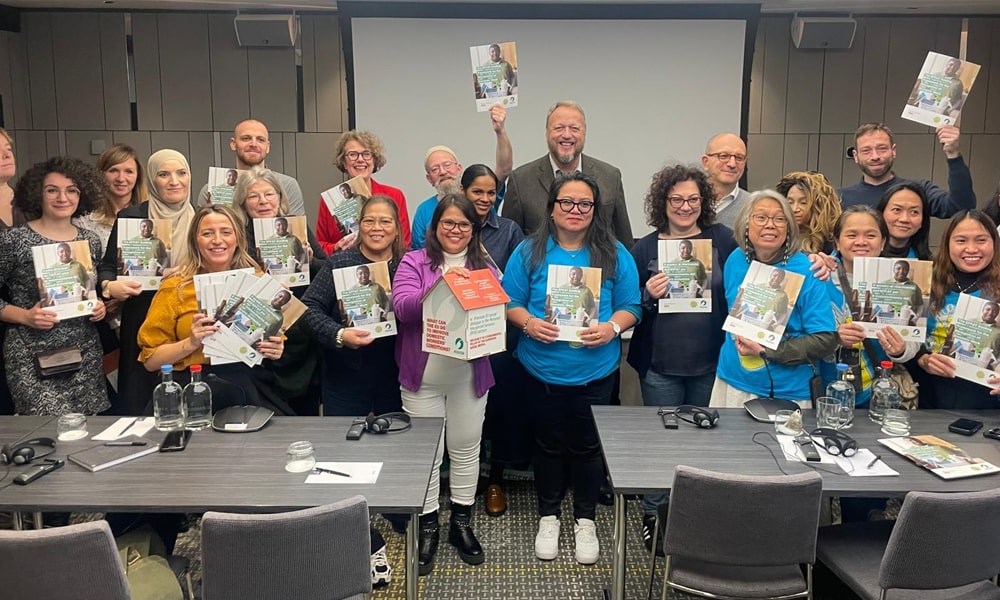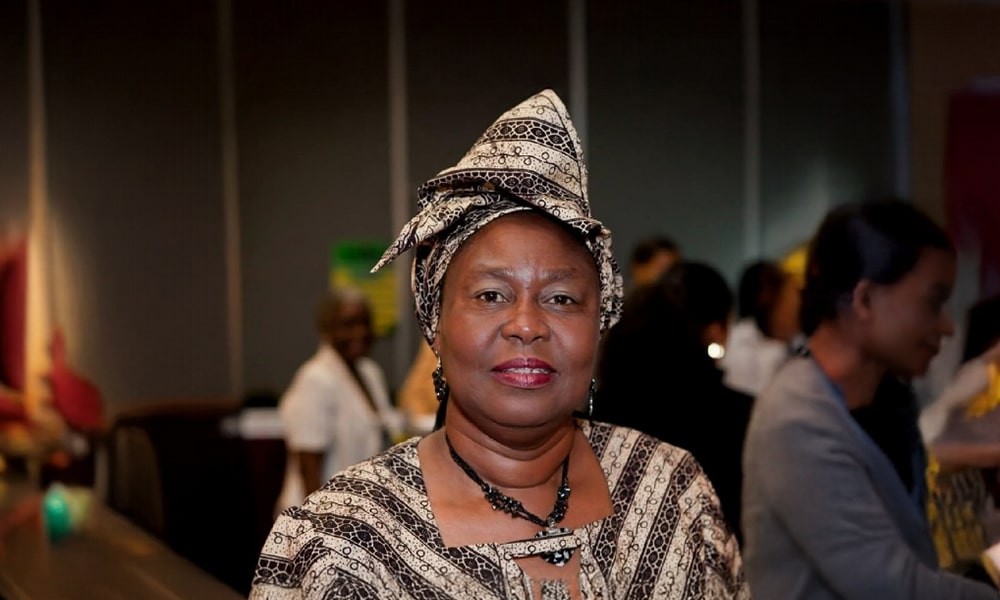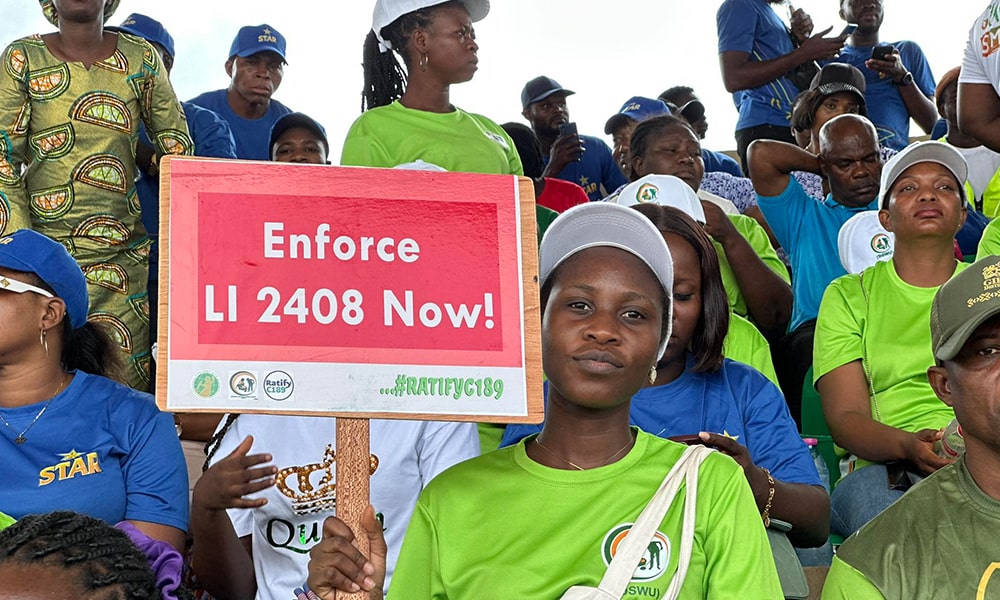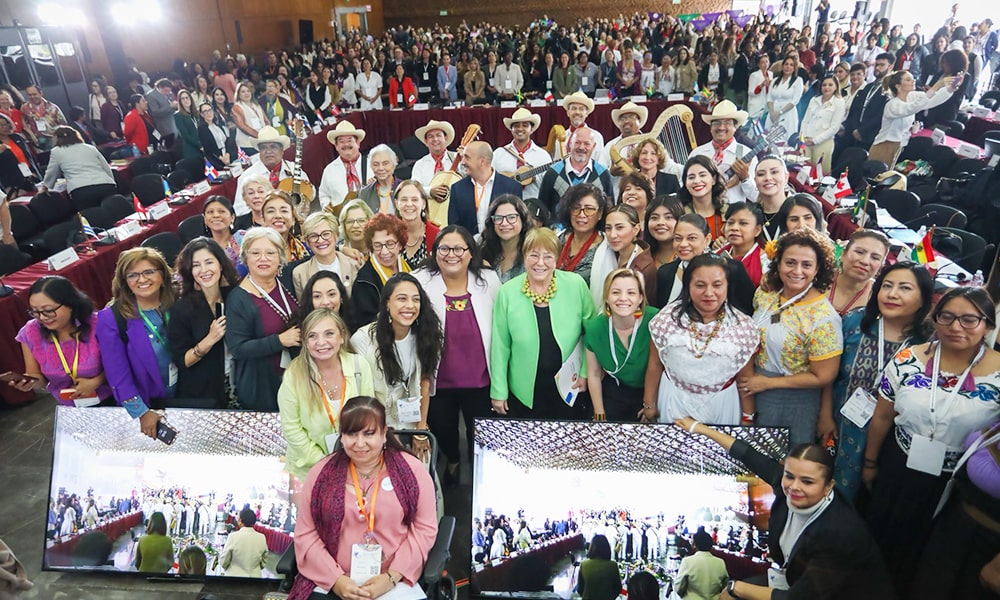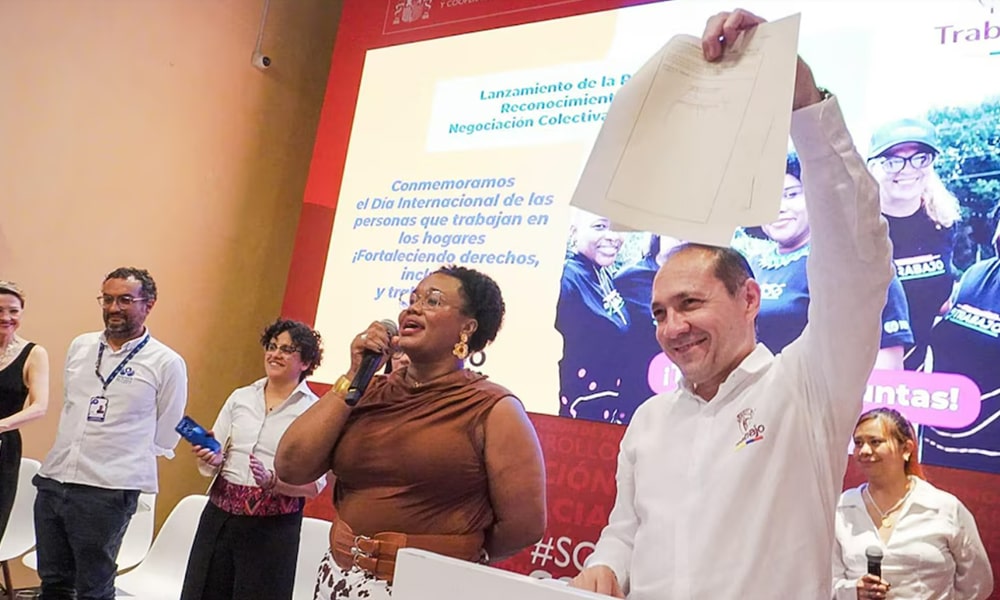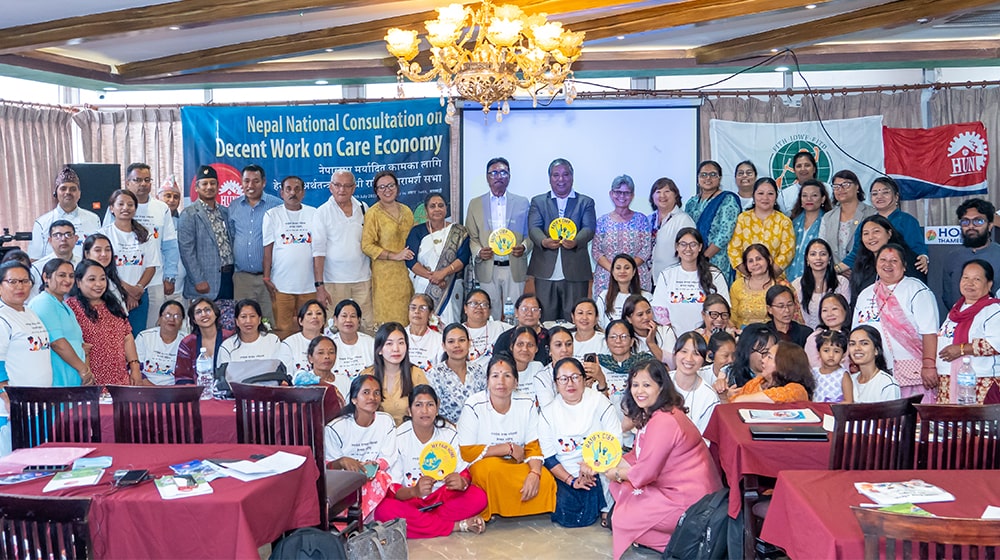
The IDWF received the Jaap Kruithof Award in Belgium this year. It is a prize that is granted to a person or an organization that challenges the social order, and makes changes through actions. The IDWF was represented by Pia Stalparet, the President of the ACV-CSC Service Union in Belgium, an affiliate of the IDWF, at the award-receiving ceremony on July 21, 2014.
Details
BELGIUM –
The IDWF received the Jaap Kruithof Award in Belgium this year. It is a prize that is granted to a person or an organization that challenges the social order, and makes changes through actions. The IDWF was represented by Pia Stalparet, the President of the ACV-CSC Service Union in Belgium, an affiliate of the IDWF, at the award-receiving ceremony on July 21, 2014.
Speech of Pia Stalparet,
President of the ACV-CSC Service Union in Belgium
Dear Friends
The best-known quote from Martin Luther King is: “I have a dream”. Well, let me tell you that even today, dreams can come true.
In 2006, under the impetus of the international food industry trade union IUF, an international network for women domestic workers was founded.
And in 2013, just 7 years later, this network has become a fully-fledged global trade union. The first and only trade union completely run by women.
The foundation and the setting-up of this new global trade union is really a fantastic story. In our contemporary world, it has been possible for an oppressed group to grow in just a few years to become the most talked-about group in the world of labour and employment relations.
Domestic workers, who were until recently not even recognized as fully-fledged employees, who in quite a number of countries are not even allowed to join a trade union, who are excluded from all employment rights, managed to create their own trade union.
Just imagine: a global trade union of domestic workers.
Despite the fact that this new global trade union will only be celebrating its first birthday in October, 47 organisations from 40 countries all over the world have already affiliated to it.
During the founding congress in October 2013 in Uruguay, we devised a 5-year plan.
It was no coincidence that this congress was held in Uruguay. Uruguay was actually the first country that ratified Convention 189 (the convention for decent work for domestic workers).
The 5-year plan is very ambitious, and consists of two components.
First and foremost, we want to encourage domestic workers to join unions or other organisations in order to defend their interests more effectively.
In addition, the new global trade union intends to campaign so that all countries ratify the convention for decent work for domestic workers, which was adopted by the International Labour Organisation in June 2011, and incorporate it into their national legislation.
So all domestic workers anywhere in the world have the same rights and are respected and regarded as fully-fledged employees, and no longer are perceived as help or a maid.
They should be seen as employees with their own working regulations, with their own conventions and full access to social security, including maternity protection and a work/life balance.
The International Domestic Workers Federation also pays particular attention to the employment of children as domestic workers. Wherever they are in the world, children should be going to school, not to work.
And we also draw special attention to the situation of migrant domestic workers.
In quite a few countries, domestic work is exclusively organised with foreign women, often women who are in an illegal situation, or who are in the country with no official documents.
In Belgium, we have the system of service vouchers, which means that we can enforce a decent salary and proper social security cover for domestic workers. But even in Belgium, a lot of domestic work is done by workers without papers.
That is why I am taking this opportunity to appeal to the future governments. It is urgent and necessary that Belgium should, as set out in the *”Butterfly agreement”, ratify the agreement (i.e. the C189) for domestic workers.
Ratification by Belgium is not only important for domestic workers here in Belgium, but is also an important signal to the European Union, to curb social dumping and the commerce in domestic staff within Europe.
The presentation of the Jaap Kruithof award is a huge sign of appreciation and recognition for all the organisations that have banded together in the International Domestic Workers Federation.
So I it is with great pride that I receive this award.
It is an incentive to keep going along the same lines.
But the domestic workers federation would not be nearly as strong without its president Myrtle Witbooi. Myrtle is a South African domestic worker who, years ago during the apartheid regime, founded her own domestic workers’ trade union. The meetings of this trade union were held in her employer’s garage.
Now she is the driving force behind the international federation.
I accept this award on behalf of all these strong women.
Thank you very much.
*Note: This is the agreement of the last government on the 6th reform of the Belgian State.
Source:

